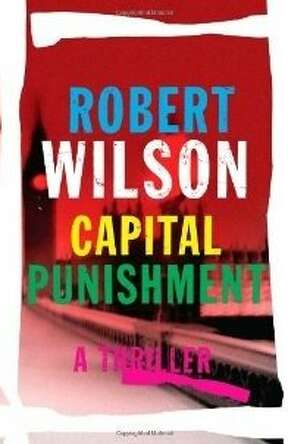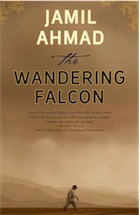 Capital Punishment by Robert Wilson
Capital Punishment by Robert WilsonKidnapping. That terrible word calls to mind a dizzying variety of true and fictional crimes. There's legendary Helen of Troy, whose beauty inspired her abduction and the Trojan War. Robert Louis Stevenson's David Balfour, young heir to the House of Shaws, kidnapped and cast away by his Uncle Ebenezer, in an effort to defraud him. Heiress Patty Hearst and former Italian prime minister Aldo Moro, snatched by left-wing extremists to trade for imprisoned comrades. Charles Lindbergh's baby, carried away to be ransomed for money. Elizabeth Smart, abducted by a pedophile. While the crime is kidnapping, the motive varies.
 When the 25-year-old daughter of Mumbai billionaire Frank D'Cruz is kidnapped off a London street in Robert Wilson's Capital Punishment, wouldn't you think the motive is money? That may not be the case. A kidnapper's calm, distorted voice on Alyshia's mobile phone toys with Alyshia D'Cruz's mother, Isabel Marks. There's no ransom demand. Neither the police nor the press must become involved. Isabel is the only person allowed to communicate with the kidnapper. She is to tell ex-husband Frank that Alyshia's return will not involve "a bit of good old Asian haggling" and that he must take the kidnapping more seriously than if it were a mere money-making endeavor.
When the 25-year-old daughter of Mumbai billionaire Frank D'Cruz is kidnapped off a London street in Robert Wilson's Capital Punishment, wouldn't you think the motive is money? That may not be the case. A kidnapper's calm, distorted voice on Alyshia's mobile phone toys with Alyshia D'Cruz's mother, Isabel Marks. There's no ransom demand. Neither the police nor the press must become involved. Isabel is the only person allowed to communicate with the kidnapper. She is to tell ex-husband Frank that Alyshia's return will not involve "a bit of good old Asian haggling" and that he must take the kidnapping more seriously than if it were a mere money-making endeavor. |
| A Mumbai crowd |
 The complex relationship between Amy and her parents, who split up but remain good friends and professional colleagues, is an example of the complicated professional and personal relationships maintained on all sides of the kidnapping. This is one of the most complex and sophisticated thrillers in my recent memory. It deals with themes of corruption, counterterrorism, distribution of wealth, loyalty and morality. Over 400 pages, it zigzags between multiple settings in London, Pakistan and India and a huge cast of colorful characters. We bounce between the London kidnappers and Alyshia, those competing to muscle in on the kidnapping, others who want to take advantage of the kidnapping for their own purposes, and people poring over evidence to identify the kidnappers and bring Alyshia home.
The complex relationship between Amy and her parents, who split up but remain good friends and professional colleagues, is an example of the complicated professional and personal relationships maintained on all sides of the kidnapping. This is one of the most complex and sophisticated thrillers in my recent memory. It deals with themes of corruption, counterterrorism, distribution of wealth, loyalty and morality. Over 400 pages, it zigzags between multiple settings in London, Pakistan and India and a huge cast of colorful characters. We bounce between the London kidnappers and Alyshia, those competing to muscle in on the kidnapping, others who want to take advantage of the kidnapping for their own purposes, and people poring over evidence to identify the kidnappers and bring Alyshia home.Writer Wilson handles all this extremely well. In the beginning, I jotted down names and notes, but before long I learned I didn't need to do this. I simply paid attention. Characters became clear through repeated appearances or short IDs such as "Simon Deacon of MI6." The only problem I found with the many multidimensional characters is that my brain was often more engaged than my heart. I wasn't always emotionally connected to the good guys, some of whom are almost as bad as the bad guys.
No matter what my feelings, Wilson's witty descriptions and writing kept me entertained. One poor MI6 agent found himself captured in India and transported like a sack of potatoes in a rickshaw shortly after eating food that disagreed with him, "as his fear multiplied the horrors of his guts." Later, he was pressed down onto a sofa and "the hood came off with a flourish, as if he was the main dish at a restaurant with ideas above its station." I'm thrilled that this thought-provoking and diverting book, published in 2013 by Houghton Mifflin Harcourt, is the first of a new series.





















